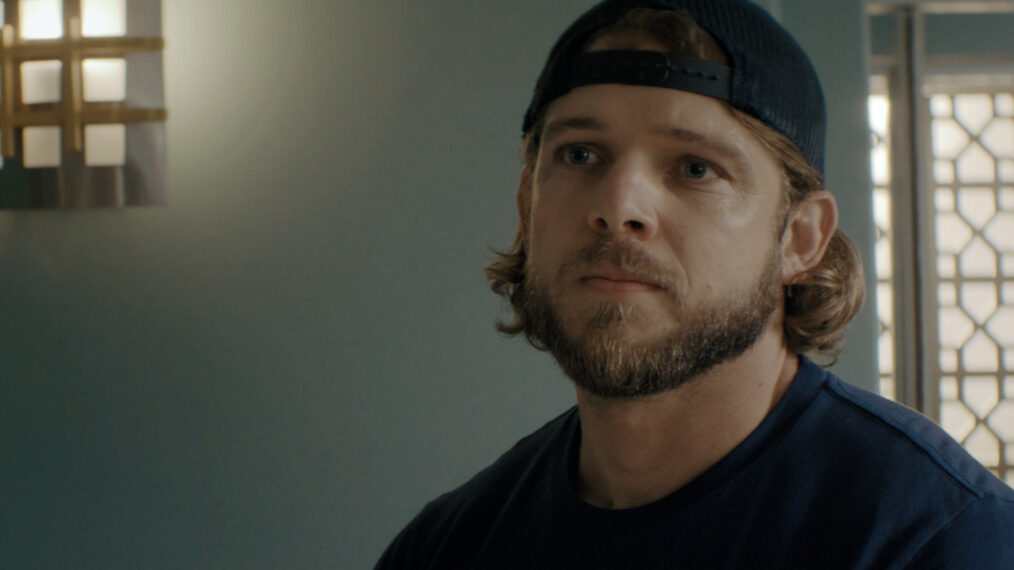For many SEAL Team fans, the wound left by Clay Spenser’s death never fully closed. The series wrapped its seven-season run on Paramount+ with an October 6 finale, but the absence of Max Thieriot’s beloved character continued to define the show’s emotional core right up to the end. While some viewers hoped the final stretch might find a way to bring Clay back in a flashback or memory sequence, executive producer Spencer Hudnut reveals there was no attempt to secure Thieriot’s return—yet the character’s influence remained unmistakable throughout Season 7.
The Loss That Redefined Bravo Team
Clay’s death in Season 6—tragically occurring while he was trying to help a fellow veteran at the center run by Ray Perry (Neil Brown Jr.) and Naima Perry (Parisa Fakhri)—sent shockwaves through Bravo. Those ripples carried forward, shaping not only the remainder of Season 6 but also the storytelling in Season 7. Clay was gone, but never truly absent. His choices, his values, and his relationships infused the team’s decisions and their personal growth, especially for Sonny Quinn (A.J. Buckley) and Ray.
Across the final season, the series explored grief not as a single moment but as an ongoing presence—one that motivated, challenged, and at times haunted those who loved him. That lingering impact became the show’s way of honoring Clay without physically bringing him back.

Why Max Thieriot Didn’t Return for the Ending
Behind the scenes, scheduling reality made a last-minute appearance unlikely. Thieriot departed SEAL Team to lead Fire Country, and coordinating even a brief return had already proven difficult during Season 6. As Hudnut puts it, “Truthfully, it was so difficult just keeping Max to finish his work Season 6 that I was not going to even try to open that can of worms.”
Given those constraints, the writers chose to lean into narrative authenticity: Clay’s impact didn’t require his physical presence. It lived inside the people he loved and the choices they made in his absence.
Honoring Clay Without Bringing Him Back
Clay’s spirit saturates the final season in ways both explicit and subtle. Hudnut notes that Clay “hangs over the season for sure,” inspiring Sonny’s growth and echoing in Ray’s internal struggle. Rather than a single callback, the writers spread Clay’s legacy across arcs that culminate in the finale, where the story honors him through Stella (Alona Tal) and through Sonny’s actions. The idea, Hudnut says, is that “even in death, Clay really helped Sonny become the best version of himself.”
That choice pays off emotionally. Sonny’s evolution—his reckoning with past mistakes, his loyalty, and his attempts to live up to the best of what Clay represented—becomes a testament to the enduring power of friendship and service. Ray’s journey, too, reflects a leader carrying the weight of loss, mindful of every choice that could keep his family—on and off the battlefield—together and alive.
A Late Realization: Learning It Was the Final Season
Another key factor shaped the finale’s approach: timing. Hudnut shares that the creative team didn’t initially realize Season 7 would be SEAL Team’s last. He learned the news well into the process—around the ninth script—long after the season’s narrative spine had been built. With the end suddenly in sight, there was little opportunity for major course corrections or to rework arcs for fan-favorite returns.
“If we had known earlier,” Hudnut says, “I’m sure we would’ve gone down different rabbit holes and brought people back from the past.” The impulse to revisit legacy characters was on the table, but the clock—and the story already in motion—won out.
The What-Ifs: Vic’s Potential Return and Unfinished Business
Among the “what-if” possibilities was Vic, played by Lucca De Oliveira. Introduced in Season 3, Vic served briefly with Bravo until the team stripped him of his trident after he allowed Ray to take the fall for his mistake. As Season 7 grappled with the future of operators and the question of what comes after, revisiting a figure whose career ended in disgrace could have added a compelling counterpoint. As Hudnut explains, “When our guys are so struggling with what comes after operating, a guy whose trident they took could maybe have an impact on them.”
But with only 10 episodes to work with, every scene had to carry maximum weight. Reintroducing legacy characters or weaving in alternate timelines risked diluting the momentum of the stories already in play. “Every moment needs to be so valuable,” Hudnut emphasizes—and for SEAL Team’s farewell, the focus stayed squarely on Bravo’s core and the consequences of Clay’s absence.
When Time Is the Enemy: Ten Episodes, Tough Choices
Fans noticed the constraints. Some bristled at the introduction of a new character so late in the game, arguing that those minutes could have gone to closure for familiar faces. Hudnut acknowledges the sentiment while standing by the final balance. Limited runtime demanded precision; character arcs had to resolve authentically rather than by checklist. The season prioritizes earned emotion over surprise cameos, letting Clay’s memory guide Sonny and Stella and keep Ray honest with himself.
Max Thieriot’s Next Chapter—and Clay’s Lasting Legacy
Thieriot’s move to Fire Country reshaped SEAL Team’s trajectory, but it also pushed the series into rich territory: how a military family copes with loss. The show avoids shortcuts, resisting easy answers or miraculous reappearances. In many ways, that restraint honors Clay more deeply. He is present not as a ghostly device, but as a moral compass—felt in Sonny’s drive to do better, in Ray’s quiet burden, and in Stella’s strength as she charts a life built on love and resilience.
For longtime viewers, that choice may feel both painful and right. SEAL Team has always married high-stakes action with deeply personal stakes. By letting Clay’s influence breathe rather than forcing a return, the series stayed true to its DNA.
How the Finale Pays Tribute
Without revealing plot specifics, the final episode threads Clay’s legacy through key decisions and personal milestones. Stella’s journey offers a graceful tribute to the life she and Clay shared, while Sonny’s actions reflect hard-won growth—the kind of growth that only comes from losing someone who made you want to be better. It’s not a flashy memorial, but a lived one, woven into the people who loved him most.
Why This Matters
Endings are ultimately about meaning. SEAL Team’s decision not to bring Max Thieriot back for a cameo isn’t a dismissal of fan sentiment; it’s a creative bet on authenticity. By embracing the truth that loss continues to shape us, the show delivers a finale that feels honest to its characters and faithful to its audience. Clay Spenser may not appear in the last episodes, but his presence anchors the story—quietly, powerfully, and permanently—through the lives he changed.
